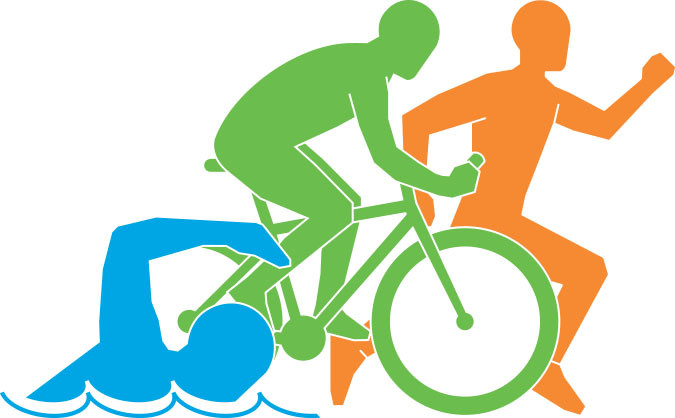
What are somatic workouts?

How to curb your stress eating

How to spot Parkinson’s disease symptoms

8 simple ways to reduce ultra-processed foods in your diet

Heart failure symptoms in women: How they’re different

GERD diet: Foods to avoid to reduce acid reflux

Strong is the new skinny

Everyday habits that sneakily weaken your bones

Don’t wait to get help for back pain

Correcting how you walk may ease osteoarthritis knee pain
Heart Health Archive
Articles
Stroke: Know when to act, and act quickly
Identifying and treating a stroke as quickly as possible can save brain cells, function, and lives. Everyone should know the warning signs of a stroke and when to get help fast.
The warning signs of a stroke can begin anywhere from a few minutes to days before a stroke actually occurs. The National Stroke Association has devised the FAST checklist to help determine whether a person is having a stroke.
Small diet tweaks can help your heart and overall health
Add these simple changes to your list of New Year's resolutions.
Diet plays a huge role in the health of your heart. Yet for many people, healthy eating is a challenge. Perhaps the biggest problem is the easy access to cheap, highly processed, unhealthy junk food. But conflicting and confusing nutrition advice from popular books, blogs, and other sources is a close second. And chances are your doctor has neither the time nor the training to give you sound nutrition advice.
"People also think that changing their diet requires a major overhaul," says Dr. JoAnn Manson, professor of medicine at Harvard Medical School and chief of preventive medicine at Brigham and Women's Hospital. "But the reality is that a few small changes can go a long way toward improving your eating habits," she says. See "Diet swaps for a healthier heart" for a summary of these suggestions, taken from a piece she coauthored in the Sept. 26, 2017, Journal of the American Medical Association.
Thinking about training for a triathlon?
Careful preparation — including a consultation with your doctor — can help you stay safe.
Image: © arpenko_ilia/Thinkstock
Whether you're a lifelong fitness enthusiast or returning to exercise after a hiatus, training for a triathlon could be a welcome way to focus your workout. These competitions, which combine swimming, bicycling, and running, have grown in popularity in recent years, including among older adults. According to USA Triathlon, the sport's governing body, more than 40% of all members are in the 40-to-59 age group — and some are in their 80s.
However, a recent study documenting the odds of dying during these events may have given pause to some would-be triathletes (see "Death and cardiac arrest in triathletes"). That's unfortunate, because the risk is really, really low, says Dr. Aaron L. Baggish, director of the Cardiovascular Performance Program at Harvard-affiliated Massachusetts General Hospital. "These findings shouldn't scare people away from doing triathlons. But the study does identify some issues about these events that are worth understanding," he says.
Stem cells to repair heart damage? Not so fast
Dozens of clinics offer unproven stem cell therapies for heart failure. Despite steady progress, this experimental treatment is not ready for prime time.
Illustration: Scott Leighton
A heart attack cuts off blood flow to part of the heart's muscle, usually causing lasting damage. Over time — especially in people with repeat heart attacks — the resulting scar tissue can hinder the heart's ability to function normally, leading to heart failure.
For nearly two decades, scientists have studied how stem cells might repair a damaged heart and restore its function. These unique cells, which have the potential to grow into a variety of heart cell types, can be made from other cells (see "What's new in cardiac regeneration?").
If exercise feels like work, make it more like a game
Friendly competition and other aspects of "gamification" may help people become more active.
If you're one of those people who meet their goal of 10,000 steps on most days, good for you. If you're not — and if exercising feels like a chore — maybe you just need to get your game on.
People who turned their step counts into a competition boosted their daily walking distance by almost a mile, according to a new study. The six-month-long study included 94 families who tracked their daily step counts with a wearable device or a smartphone. Half were randomly chosen for the "gamification" arm of the study, which was designed to encourage collaboration, accountability, and team spirit. These families received small prizes tied to achieving daily and weekly step goals. Just over half of the participants were women, and their average age was 55.
Uncovering the connection between sleep and heart health
Research we're watching
Sleeping either too little or too much has been linked to a higher risk of heart disease. But how much do other interconnected factors — namely, activity levels and body weight — affect this observation?
In an effort to find out, researchers studied nearly 240,000 healthy adults ages 51 to 72 who were part of a nationwide health study. The investigators examined the influence of moderate-to-vigorous physical activity, television viewing, and body mass index on sleep duration and death rates.
Taking clot-prevention drugs for afib may lower risk of dementia
Research we're watching
Among people who have atrial fibrillation (afib), those who take anti-clotting medications may be less likely to develop dementia later in life than those who don't take the drugs, a new study finds.
Afib, a disorder marked by a rapid, irregular heartbeat, raises the risk of stroke as well as dementia. Anti-clotting drugs are known to lower the risk of stroke, but the drugs' effects on dementia weren't clear. So Swedish researchers examined hospital and pharmacy registry data from nearly half a million people who were diagnosed with afib between 2006 and 2014.
Skipping breakfast linked to higher odds of clogged arteries
Research we're watching
New research supports the old adage that breakfast is the most important meal of the day. A study of more than 4,000 middle-aged adults in Spain found that those who ate breakfast were less likely to have artery-clogging plaque (atherosclerosis) than those who avoided a morning meal.
On average, the participants ate just over 2,300 calories per day. Nearly 3% didn't eat breakfast, while about 27% ate a hearty breakfast and nearly 70% ate a skimpier breakfast. Researchers used ultrasound to check their arteries for early evidence of atherosclerosis, as they described in the October 2017 Journal of the American College of Cardiology.
MRI is safe for most people with pacemakers and defibrillators
In the journals
Magnetic resonance imaging (MRI) has long been considered dangerous for people who have electronic heart devices like pacemakers and defibrillators implanted in their bodies. Now, a study published online Aug. 14, 2017, by the Journal of Clinical Electrophysiology suggests the scans are safe for most people with these devices.
Until recently, most devices were not FDA-approved for MRI. They had been considered risky because it was feared that the high-strength magnetic fields used for the scanning could disrupt a pacemaker's or defibrillator's circuits. Yet, when researchers reviewed 212 MRI examinations involving 178 patients with these nonapproved devices, they did not find a single problem with how they functioned. The researchers concluded that MRI is safe for someone with a device implanted after 2000, as long as the device is checked before and after the procedure and its pacing function is monitored during the scan.

What are somatic workouts?

How to curb your stress eating

How to spot Parkinson’s disease symptoms

8 simple ways to reduce ultra-processed foods in your diet

Heart failure symptoms in women: How they’re different

GERD diet: Foods to avoid to reduce acid reflux

Strong is the new skinny

Everyday habits that sneakily weaken your bones

Don’t wait to get help for back pain

Correcting how you walk may ease osteoarthritis knee pain
Free Healthbeat Signup
Get the latest in health news delivered to your inbox!
Sign Up









